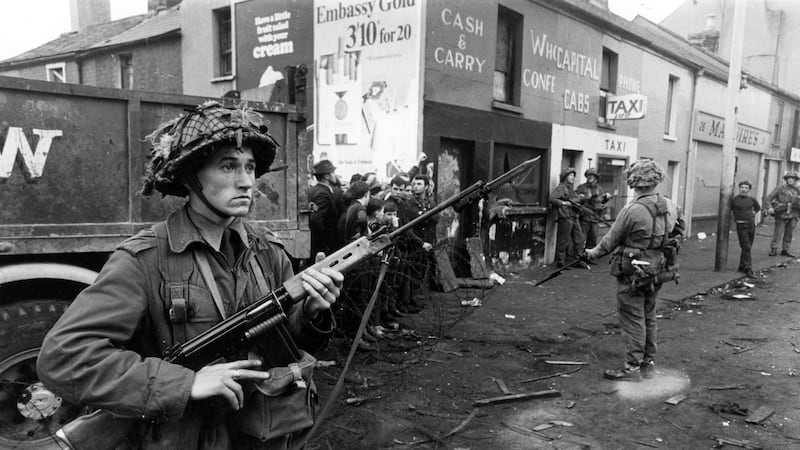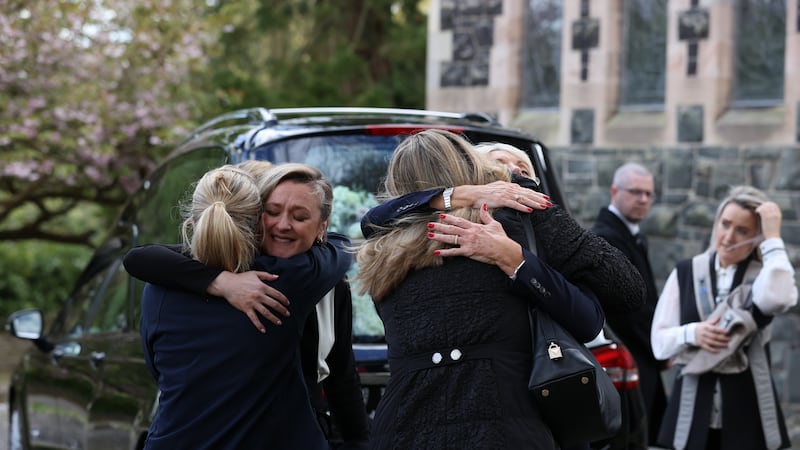The first and deputy first ministers have denied they are engaging in “gesture politics” for the sake of it. Speaking during a visit to St Paul’s Gaelic Athletic Club in west Belfast, Michelle O’Neill said leadership means “stepping outside your comfort zone” and Emma Little-Pengelly said “it’s a great thing to get out there, have some new experiences and learn from each other”.
People who find this all rather cloying or forced may have grounds for their suspicions but they should consider the possibility that O’Neill and Little-Pengelly have a civil working relationship. This would not need to be particularly warm to be a significant improvement.
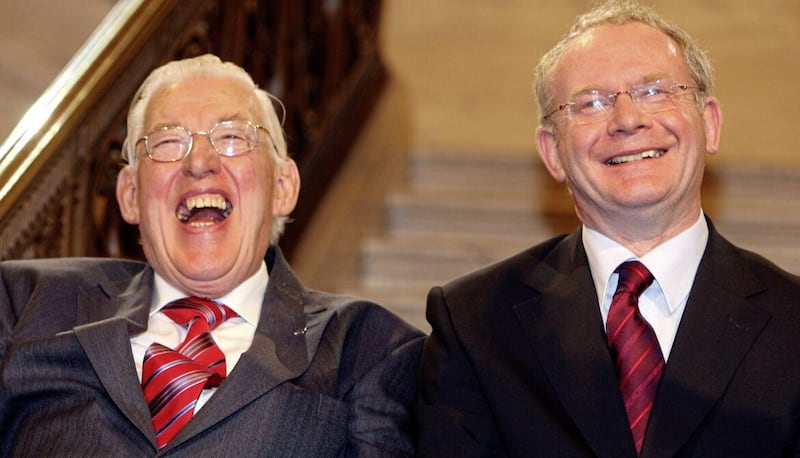
It is fair to say that every previous first and deputy first minister, with the exception of the SDLP’s Mark Durkan, was a somewhat prickly character. There has certainly never been a pairing at the top where at least one character was not rather prickly indeed. The ‘Chuckle Brothers’ act of Ian Paisley and Martin McGuinness was an awkward charade, based on tip-toeing around the DUP leader’s declining faculties. O’Neill and Arlene Foster eventually made their peace but it was a frosty truce.
So, for the first time, we have two fairly personable people in charge. It might make a surprising difference, if they can sustain it, and if Little-Pengelly is not just keeping a seat warm until the general election.
It is fair to say that every previous first and deputy first minister, with the exception of the SDLP’s Mark Durkan, was a somewhat prickly character. There has certainly never been a pairing at the top where at least one character was not rather prickly indeed
**
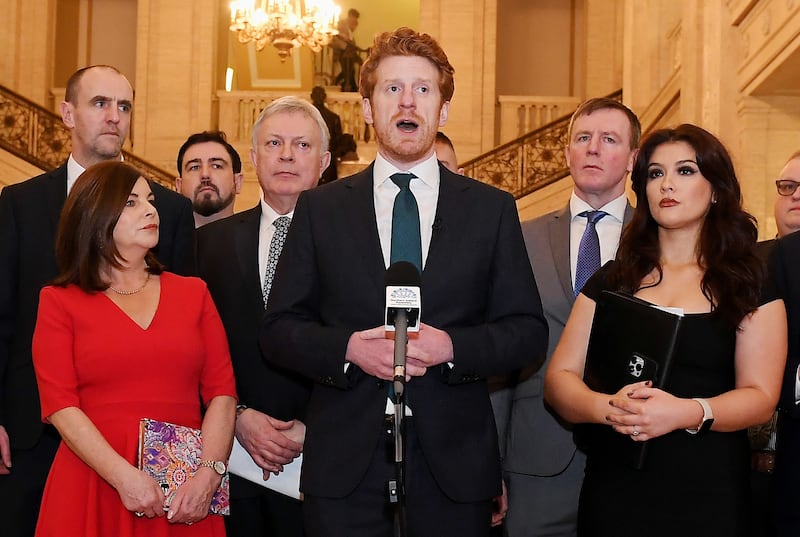
The SDLP used its first ‘opposition day’ to call for Stormont reform but the first and deputy first ministers refused to attend the debate, only appearing for the final vote. Both their parties opposed reform, while all others supported it.
Emma Little-Pengelly later explained that reform is a matter for the Assembly and Executive Review Committee, so it was outside her office’s remit. This was a ridiculous excuse but the SDLP had asked for it by also calling on Sinn Féin and the DUP to apologise for previous collapses and promise never to walk out again. It was not constructive politics to demand sackcloth and ashes from two parties that were never going to oblige.
**
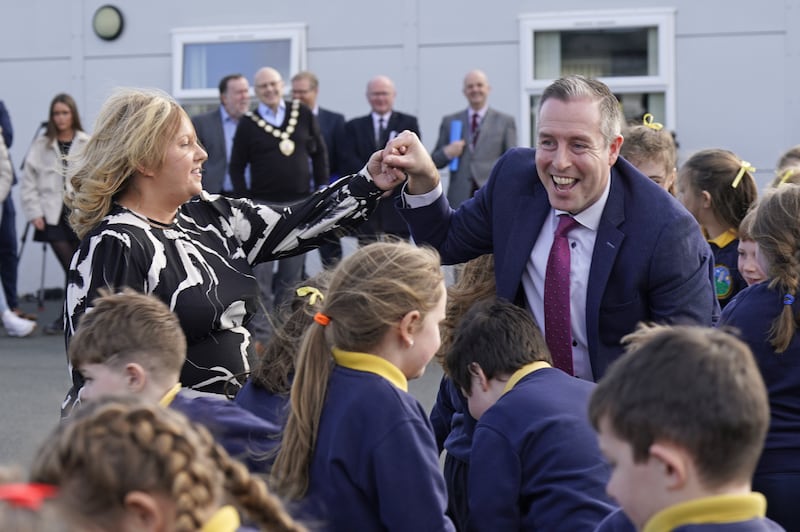
DUP education minister Paul Givan is to consider a Sinn Féin proposal for a price cap on school uniforms. While this consensus means action is likely, a cap is an unusual approach that might not work well on its own. It would need regular adjustment for inflation and schools might see it as a target rather than a maximum.
The Department of Education already issues detailed guidelines on uniform costs; the problem is that these are not legally binding, so schools ignore them. In 2021, England passed a law making its similar guidelines compulsory. That would be a better approach at Stormont, although it could add a cap as well – both would require legislation. The ill-discipline of schools in ignoring the guidelines will require firm correction.
**

A Belfast resident has asked the council to light City Hall to mark the Irish president’s birthday, noting the king’s birthday was marked last year with red, white and blue. It is assumed this would mean green, white and orange, although the council is still waiting for the president’s office to specify appropriate colours – his flag is blue and gold.
The DUP and UUP backed an unsuccessful TUV proposal for white-only illumination. Yet at an initial meeting, the resident’s request was approved unanimously by a committee whose 20 members included five unionists, all from the DUP. It seems the DUP knew not to blunder into a flag row, then had to sidestep a trap laid for it by the TUV.
If this gets any trickier, there is a bold unionist defence. The DUP could point out City Hall is often lit in the colours of other countries. It will be in red and white for Polish Independence Day this November, for example, and was red for the centenary of Turkish independence last October.
**
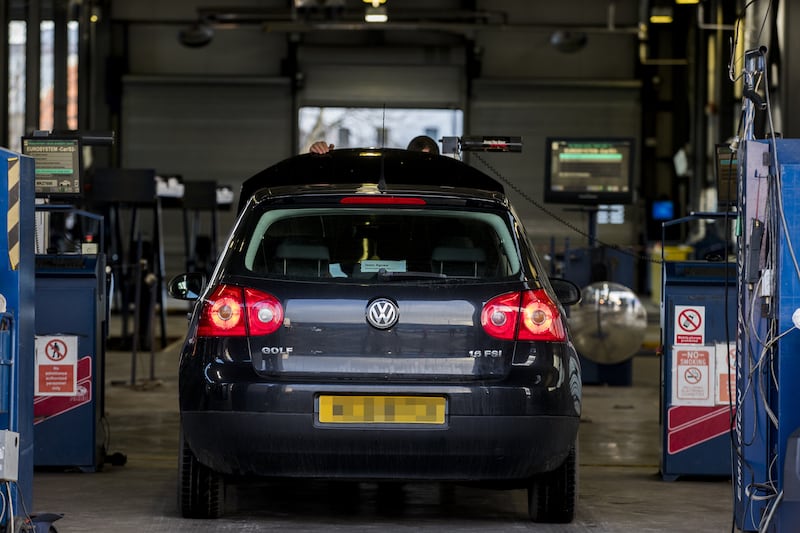
A 72-day wait for an MOT is the “new normal” in Northern Ireland, according to the chief executive of the Driver and Vehicle Agency (DVA). All backlogs from Covid and lift failures have cleared and more tests than ever are being performed but capacity has not kept up with more cars on the road and people keeping their cars for longer. Now new cracks have been discovered in test centre lifts.
This must provoke a rethink on Northern Ireland’s annual testing schedule. We are driving the same cars as the rest of the world, yet most of world tests less often. Every two years after four years is common across Europe, including such dangerous developing countries as Norway. Only two of Australia’s seven states require regular testing, with one only requiring it after 10 years. Just 15 US states require regular safety testing, a number that is falling, as modern cars are not felt to require it. The US puts more emphasis on emissions testing, which the DVA is still struggling to do. Moving to a biannual schedule would double its capacity overnight.
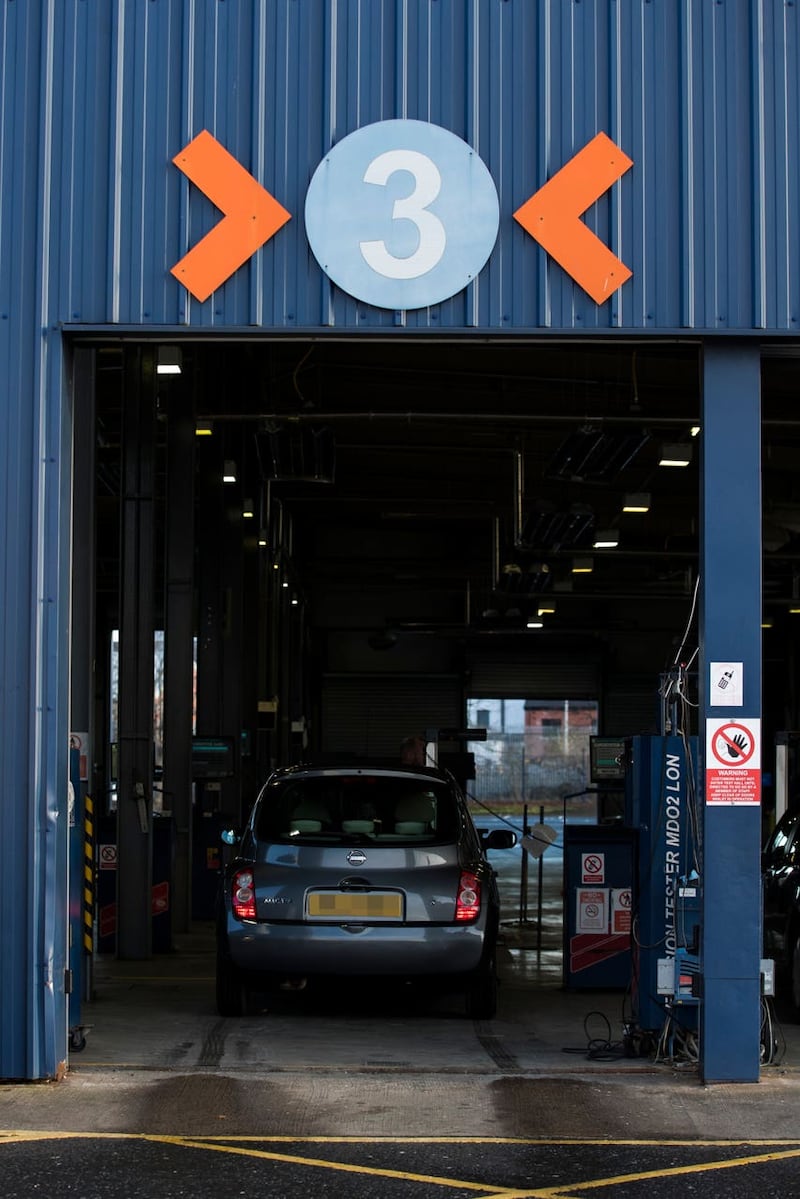
**
Harland and Wolff has been selected as the preferred bidder to fabricate a £120 million floating harbour for the Falkland Islands, replacing one it built 45 years ago.
Although excellent news, this raises a question increasingly heard across Northern Ireland’s engineering industry: where are the welders going to come from?
Many used to come from eastern Europe, until Brexit intervened. There was a highly-regarded training centre in Newtownabbey but it closed in 2010.
Some firms have become so desperate they are buying other firms just to acquire their staff. High wages are on offer and welders have good prospects for promotion, travel and self-employment. They are in especially high demand in fashionable green industries. Yet it is clear few young people see it as a career.
**
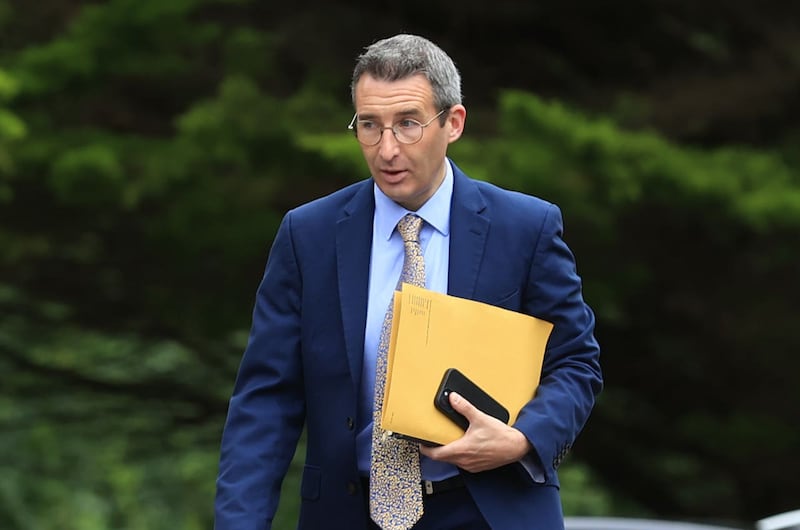
Alliance environment minister Andrew Muir says he feels “a sense of shame” about the condition of Lough Neagh. Perhaps part of the problem is that it is out of sight and hence out of mind. Most of us only catch occasional glimpses of the lough as there are few roads along its shore.
That could change significantly with a new footbridge across the mouth of the Upper Bann. Sinn Féin infrastructure minister John O’Dowd has confirmed he is moving the long-discussed project onto the detailed design stage, although it still has no budget for construction. This bridge is the missing link in a shoreline circumnavigation for walkers and cyclists, creating a greenway-type amenity for residents, day-trippers and tourists. The more people keeping an eye on their drinking water, the better.


